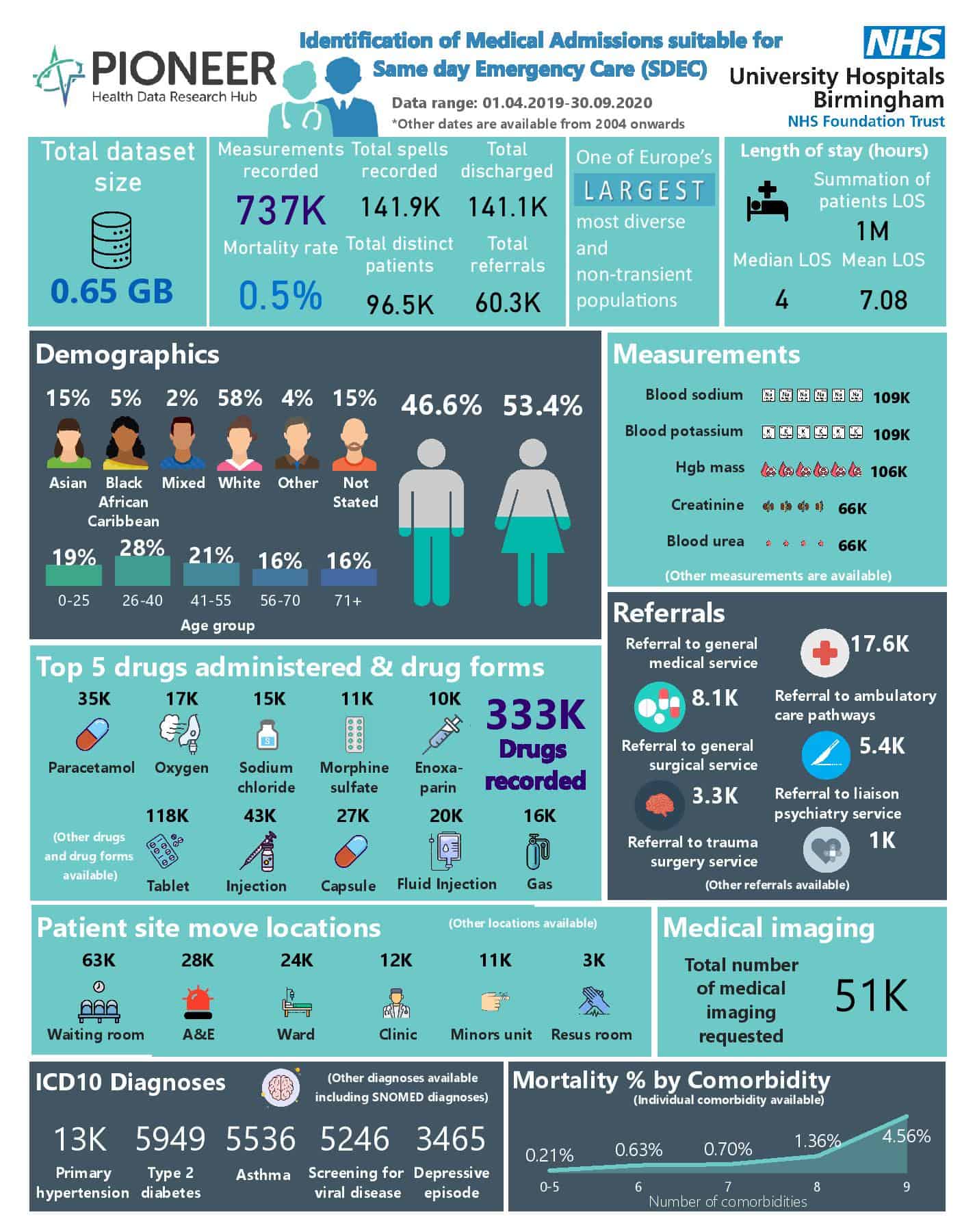- Introduction
- Data Coverage
- Further Details
- Request Access
Emergency hospital admissions in the UK have been rising steadily. Medical emergencies account for the largest proportion of unplanned admissions. A proportion of medical admissions are suitable for Same Day Emergency Care (SDEC), where they are assessed and treated, but do not require overnight admission to an inpatient bed. This is beneficial for patients, as hospital admission and its associated risks can be avoided. SDEC is highlighted in the NHS Long Term Plan, recommending a third of patients in acute services should receive SDEC.
This dataset includes all acute medical admissions to University Hospitals Birmingham NHS Trust (UHB) from January 2004 to September 2020 onwards (currently 141,921 same days emergency spells that is completed in hours or less ). Data is available from 2000 on request.

Geography
The West Midlands (WM) has a population of 5.9 million & includes a diverse ethnic & socio-economic mix. There is a higher-than-average percentage of minority ethnic groups. WM has a large number of elderly residents but is the youngest population in the UK. There are particularly high rates of physical inactivity, obesity, smoking & diabetes. Each day >100,000 people are treated in hospital, see their GP or are cared for by the NHS.
EHR
University Hospitals Birmingham NHS Foundation Trust (UHB) is one of the largest NHS Trusts in England, providing direct acute services & specialist care across four hospital sites, with 2.2 million patient episodes per year, 2750 beds & 100 ITU beds. UHB runs a fully electronic healthcare record (EHR) (PICS; Birmingham Systems), a shared primary & secondary care record (Your Care Connected) & a patient portal “My Health”.
Scope
All medical patients presenting to acute care at UHB with community from 2004 onwards. Longitudinal & individually linked, so that the preceding & subsequent health journey can be mapped & healthcare utilisation prior to & after admission understood. The dataset includes ICD-10 & SNOMED-CT codes pertaining to all co-morbid conditions. Serial, structured data pertaining to process of care (timings, staff grades, specialty review, wards), presenting complaint, all physiology readings (pulse, blood pressure, respiratory rate, oxygen saturations), all blood results, microbiology, all prescribed & administered treatments (fluids, nebulisers, antibiotics, inotropes, vasopressors, organ support), all outcomes. Linked images available (radiographs, CT).
Available supplementary support
Analytics, Model build, validation & refinement; A.I.; Data partner support for ETL (extract, transform & load) process, Clinical expertise, Patient & end-user access, Purchaser access, Regulatory requirements, Data-driven trials, “fast screen” services.



